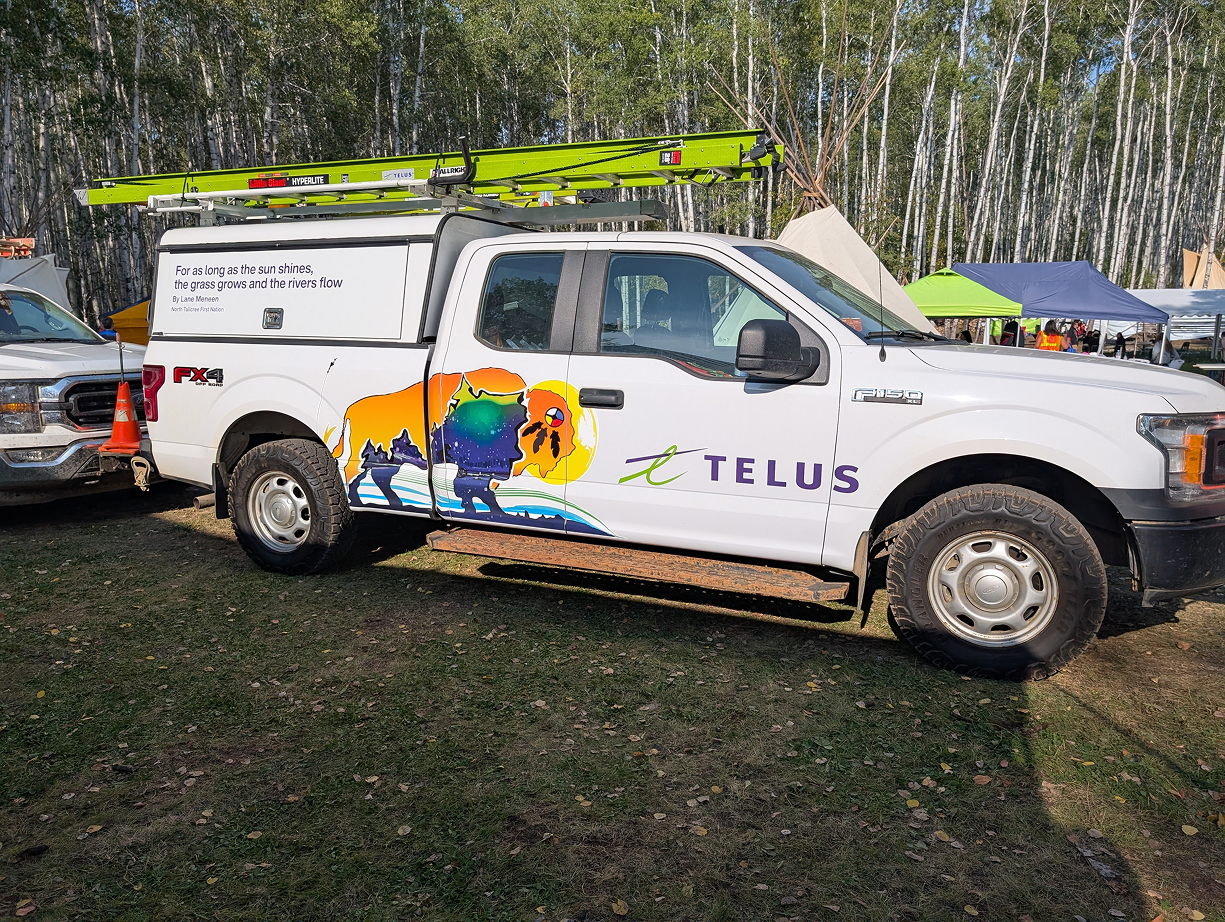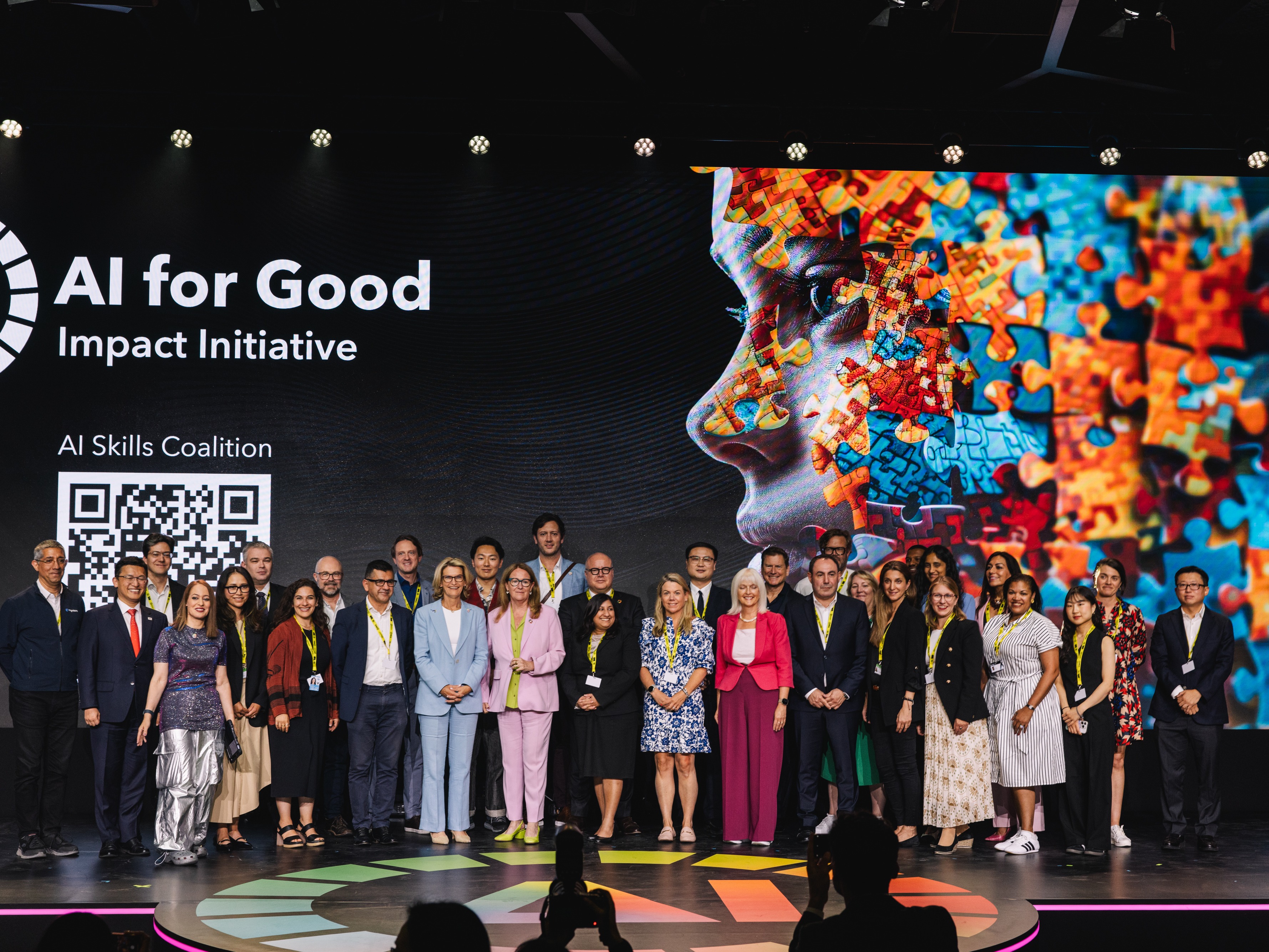
Reconciliation
Guided by Indigenous leaders
Apr 26, 2022
(Above) SYÓ:QWEM | THE SUN
KWEXTA’LSP | OVILA MAILHOT
KWEXTA’LSP | OVILA MAILHOT
When Luc Lainé was asked to join a bold new initiative designed to guide TELUS’ reconciliation actions and reshape how the tech company partners with Indigenous communities, he didn’t hesitate.
“The fact that a company as important and present throughout Canada as TELUS takes the risk of getting involved publicly will certainly have a positive ripple effect,” he said. “The involvement of other companies from various sectors of the economy will promote the representation and inclusion of Indigenous Peoples in a multitude of sectors within the larger, socio-economic circle of Turtle Island.”
Lainé, a citizen of the Huron Wendat Nation located in Wendake, Québec, and ex-delegated Chief of the Huron Wendat Council, is one of five Indigenous leaders providing their expertise in TELUS’ newly established Indigenous Reconciliation Action Plan Advisory Council.
This approach is in alignment with the feedback TELUS received from Indigenous Peoples and ensures the tech company is able to appropriately implement actions as laid out in their five-year
Indigenous Reconciliation Action Plan (IRAP)
. TELUS has been working with Indigenous communities for over a decade, and spent 2021 actively developing an inclusive, culturally relevant Indigenous Reconciliation Strategy and IRAP that was guided by Indigenous voices and frameworks of reconciliation and leveraged their core competencies with an emphasis on meeting the needs of the diversity of Indigenous Peoples in the areas that they serve.
TELUS’ IRAP has established goals and targets to guide reconciliation activities over the next five years (2022 through to 2026). The formation and establishment of the Advisory Council this year will assist TELUS in implementing and achieving the targets in the Action Plan.
We spoke with four members of the advisory council and it is with gratitude that we share their thoughts on why corporate participation in Indigenous reconciliation is important, and why they see themselves supporting TELUS in its reconciliation journey and ensuring the greatest positive impact.

Left to right:
Carol Anne Hilton - Hesquiaht Nation, CEO and Founder, Indigenomics Institute and the Global Centre of Indigenomics.
Luc Lainé - Citizen of the Huron Wendat Nation located in Wendake, Québec - ex-delegated Chief of the Huron Wendat Council.
Shani Gwin - 6th generation Métis and a descendant of Michel First Nation, Founder of pipikwan pêhtâkwan, Indigenous owned and operated public relations agency.
Dr. Kim van der Woerd - Proud member of the ‘Namgis First Nation, completed her PhD in Psychology at Simon Fraser University.
Q: What made you want to be a part of TELUS’ IRAP Advisory Council?
Carol Anne - TELUS is demonstrating tremendous leadership in the economic reconciliation space. It is important to support.
Luc - The proposed approach, the seriousness and the respect shown by the employees and the management convinced me of TELUS’ commitment and determination to concretely support the calls to action of the Truth and Reconciliation Commission’s report.
Q: How do you see yourself supporting TELUS’ IRAP?
Carol Anne - Supporting the IRAP means to me providing insight into trends in Indigenous economic growth and designing corporate relationships with Indigenous communities.
Shani - Our team brings our lived experience as Indigenous people, our knowledge and understanding to help guide and develop respectful, honest and kind approaches. I will come to this advisory council in the same way – ready to listen, understand, make thoughtful recommendations, and also ensure Indigenous ways of knowing and doing are not forgotten throughout the process.
Q: Where do you think TELUS can have the greatest impact in reconciliation?
Shani - TELUS is ready to invest in projects like connectivity, food sustainability, language revitalization, health, mental health, and economic reconciliation in partnership with Indigenous communities. They have a profile so large that their actions will have a ripple effect – there will be more awareness among the general public and the pressure will be on for other North American corporations to invest in Indigenous communities and be part of the positive change.
Dr. van der Woerd - There is an enormous digital divide, exacerbated by the pandemic. TELUS can reduce that divide from a technological perspective. Enhancing health, economic and holistic wellbeing is really key. When I think about reconciliation, one of the definitions I have always fallen back on is that reconciliation means changing the narrative of who we are as Indigenous people in Canada. TELUS has a far-reaching network, if TELUS can contribute to changing the narrative about who Indigenous people are through advocacy, connectivity, health, and leading other corporations to join the reconciliation movement, I think there are countless ways that TELUS can have an impact.
Q: Three Indigenous-led frameworks guide TELUS’ reconciliation efforts. What do you think a general audience needs to know about these frameworks (TRC, UNDRIP, 231 Calls to Justice)?
Carol Anne - It is time to shape leadership and meaning into each of these important frameworks. This means building our collective response and supporting the growth and well being of Indigenous economies and communities.
Dr. van der Woerd - These frameworks being Indigenous-led is key. What I would see as a call to action stemming from these frameworks is, an ask for non-Indigenous people to join us and share the load. Indigenous women continue to fight for healing, justice, restitution at a political and justice realm and within their communities and with their families. It has been a heavy burden on Indigenous Peoples. We didn’t create colonialism, yet we have the heavy task of dismantling it and cannot do it alone.
Q: When you think forward 50 years from now, what do you want the legacy of your efforts in reconciliation to be?
Luc - A period of 50 years represents approximately two generations; it’s very little when you look at it that way. I do believe, however, that it will take about 50 years to really reframe our country. To get to the roots of the systemic problems, and to show courage and determination to invent and implement mutual and lasting solutions.
Shani - I would be very happy to know that we are still here, speaking our languages, practicing our culture and traditions, achieving economic sovereignty, and accepted in society for who we are. I hope our truths are believed and acknowledged and that we are working together (Indigenous and non-Indigenous) to celebrate our differences and similarities.
Dr. van der Woerd - I would like to see responsibility for stewardship of land shift back to Indigenous Peoples so that we can go beyond 50 years and go back to the teachings of taking what we need from the land, and leaving the rest. I also hope our work leads to a recognition of the significant worth and value Indigenous people have to offer to Canadian society.
To learn more visit
telus.com/reconciliation


